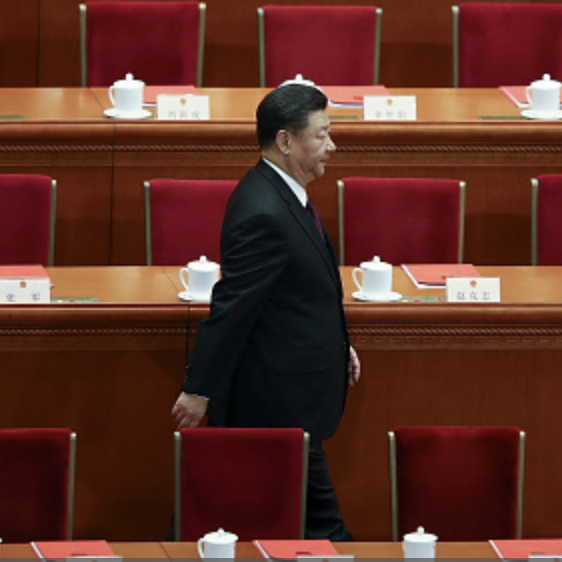Loyalty over policy? Xi Jinping’s indefinite term could spell trouble for China
Chinese President Xi Jinping’s re-election could result in his Cabinet putting loyalty ahead of policy, experts say. YOUJIA TAN and RENYUAN OUYANG report.

http://gty.im/934752886
Xi Jinping briefly cut a lonely figure at the closing ceremony in the National People's Congress last week. He is now President of China indefinitely.
By YOUJIA TAN and RENYUAN OUYANG
Chinese President Xi Jinping’s re-election could result in his Cabinet putting loyalty ahead of policy, says Monash University Chinese Studies lecturer Jonathan Benney.
“Once you have a president who is going to be the president for life, loyalty to that leader becomes more important than policy consideration or trying to develop China,” Dr Benney said.
Mr Xi was re-elected as the country’s president last week with no limit on the number of terms he can serve, after legislation was passed on March 11 ending the two-term limits on the presidency.
Dr Benney said an indefinite term for Mr Xi could weaken opposition to the party and have a negative impact on future policy decisions within the government.
“It might be beneficial in the short term to have a stable leader because they don’t need a new generation of leadership … but if people are dissatisfied with Xi, the anger won’t go away and it will create more conflict than a transition to a new leader would have,” he said.
The re-election has raised eyebrows around the world, but also received praise from United States President Donald Trump and Indian Prime Minister Narendra Modi.
In China, media outlets have championed the results of the election.
The official press agency of China, Xinhua News, said in a statement that the revision of the constitution represented the party and the people’s common goals.
http://gty.im/934739256
Mr Xi addresses Congress last week.
“Delegates of The Chinese People's Political Consultative Conference unanimously agree that changing the current constitution satisfies the wishes of the party and the people,” the statement said.
“The new constitution will flourish and stabilise China and have a profound historical impact for future generations.”
Australia's Foreign Affairs Minister Julie Bishop remained tight-lipped on the constitutional changes and instead praised the country’s continued economic rise.
“It’s a constitutional issue for the people of China,” Ms Bishop told the Sydney Morning Herald.
Ms Bishop also called Mr Xi a “very effective leader” and reaffirmed China as one of Australia’s most important trading partners.
"China is our largest two-way trading partner and what happens in China affects the rest of the world. It’s a regional and global power and we welcome its economic rise," she said.





